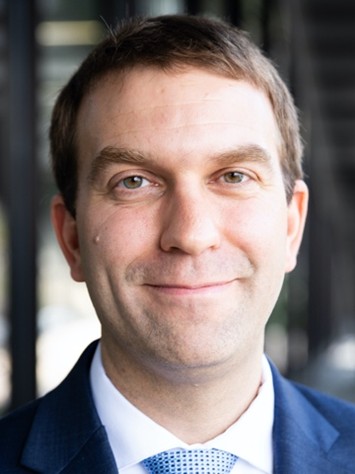Homecoming of Discovery
MSU welcomes back Jeff Barrick and the landmark Long-Term Evolution Experiment
Jeff Barrick is returning to Michigan State University as a Hannah Distinguished Professor with joint appointments in the Departments of Microbiology, Genetics, & Immunology, or MGI, and Entomology.

A leader in microbial evolution and synthetic biology, Barrick’s arrival marks not only a personal homecoming, but also the return of one of the most influential experiments in evolutionary biology: the Long-Term Evolution Experiment, or LTEE.
The LTEE is a landmark scientific project launched by Barrick’s postdoctoral advisor, Rich Lenski, a Hannah Distinguished Professor in both MGI and the department of integrative biology, in 1988. The experiment has followed 12 populations of Escherichia coli for more than 80,000 generations, transforming the field of microbial evolution and offering unprecedented insights into adaptation, genome dynamics and the emergence of new traits.
Barrick’s postdoctoral work helped apply whole-genome sequencing to experimental evolution and laid the foundation for his future research.
“Around 2005, while Jeff was in the lab here, we began to sequence some of our strains,” Lenski said. “Jeff played a critical role in that sequencing and in analyzing their genomes, so that’s one of his strengths.”
In 2022, as he began preparing to close his lab, Lenski handed the LTEE off to Barrick, then a professor at University of Texas at Austin.
A shift in direction
Barrick’s path to evolutionary biology began as an undergraduate at Caltech, where he was initially drawn to organic chemistry. But a lunchtime faculty research seminar and a childhood steeped in evolutionary science thanks to his father, a micropaleontologist—sparked a shift in direction.
“I discovered a love of evolution when I was an undergraduate,” Barrick said. “I was always into applied evolution—learning about biology by doing an experiment with evolution, seeing how it solved your problem and then trying to understand these bigger processes of evolution and also just how proteins, RNAs and other molecules work.”
It was during his Ph.D. research at Yale University that Barrick realized he wanted to shift again and study evolution in terms of whole bacteria instead of biomolecules on their own in a test tube.
Despite having no connection to the field of microbiology, Barrick began reading scientific literature and learned about Lenski’s research on both the LTEE E. coli system and an artificial intelligence system developed by Charles Ofria, an MSU Professor of Computer Science and Engineering, and MGI Professor Chris Adami.
Barrick wrote to Lenski and Ofria out of the blue and asked if he could do his postdoctoral research with them.
“We were both very thrilled that he wrote to us,” Lenski said. “Jeff was interested in doing experimental evolution with bacteria, hence his role in the long-term lines, but he was also interested in the idea of using these self-replicating computer programs that we call ‘AVIDA’ to study evolution.”
Later, as a professor at UT Austin, colleagues introduced Barrick to the idea of synthetic biology—large-scale genetic engineering of organisms for useful and interesting purposes. Those partnerships have allowed him to expand his long-term evolution research into new territory, such as how expanded genetic code affects virus evolution, and develop strategies for preventing engineered organisms from malfunctioning over time. One of his favorite species for launching new experiments has been Acinetobacter baylyi, a bacterium with a remarkable ability to absorb and integrate DNA from its environment.
“He’s just a terrific collaborator,” Lenski said. “I think that’s a big part of who he is as a scientist. He’s the smartest person I’ve met, but he’s also incredibly open to new ideas and to working with people to help their projects.”
Inside the hive
Barrick's recent work focuses on honeybee gut microbiomes, where he uses engineered symbionts—organisms that live in close partnership with one another—to protect bees from pathogens and parasites.
“Now that we know a lot about being able to genetically engineer these microbes, that’s a really cool tool for understanding ecology and evolution of the microbes in the honeybee,” Barrick said, “which brings me back to a lot of the principles I was interested in with the long-term evolution experiment with E. coli. These are both systems where you can watch how microbes change over time.”
Barrick plans to enhance his honeybee research using MSU’s Pollinator Performance Center.
“I’m so excited to be working with them,” Barrick said. “They manage many hives all around MSU and are very knowledgeable about beekeeping practices relevant for supporting agriculture.”
Despite never having taken a formal course in entomology, Barrick has become a leading voice in honeybee microbiome research. His path mirrors that of his mentor, Lenski, who is a world-famous microbiologist despite never having taken a microbiology class. Both scientists exemplify how curiosity, interdisciplinary thinking and collaboration can lead to transformative science.
Barrick also works on aphid symbionts. Engineering these bacteria could make these insect pests less harmful to plants. These projects combine molecular biology, ecology and biotechnology to address real-world sustainability challenges.
Barrick is also a passionate mentor and educator. He has supervised award-winning undergraduate iGEM synthetic biology teams for over a decade and is enthusiastic about integrating research into education. He looks forward to contributing to MGI’s evolving graduate programs and collaborating with colleagues across disciplines.
“MGI is trying new things with graduate education,” said Barrick, “including some ways of teaching people how to think deeply about the science they’re doing, which I think is a really important skill in the days of AI.”
“Although it’s a homecoming for the long-term evolution experiment and a homecoming for Jeff, Jeff is much, much more than the long-term evolution experiment,” Lenski said. “I fully expect that he’s going to do other cool things. He’s a biochemist by training, he’s a synthetic biologist by outlook and he’s an evolutionary biologist through his experiences with me. I look forward to seeing what he and his students are going to do.”
- Categories: